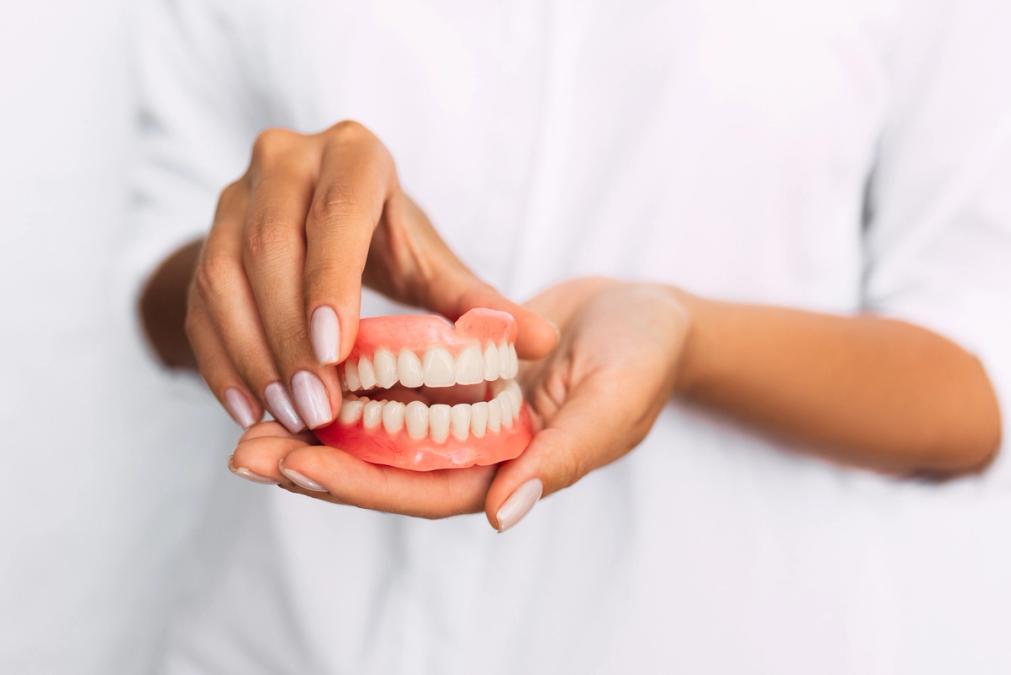
Published on Jun 23, 2025 | 7 minute read

Losing teeth can feel overwhelming—but it doesn’t mean losing your smile. Thanks to modern restorative dentistry, dentures have come a long way from the one-size-fits-all plates of the past. Today’s dentures are more comfortable, more natural-looking, and more personalized than ever. But one big question still remains for many patients:
Should I get complete dentures or partial dentures?
If you’ve been weighing your options—or just trying to figure out what all the dental terms really mean—this guide breaks it all down clearly, with no fluff and no confusion.
Dentures are custom-made dental prosthetics designed to replace missing teeth and restore both function and appearance. They help you eat, speak, and smile with more ease and confidence. Dentures come in two main types:
Both types are removable (although implant-supported dentures offer a semi-permanent option), and both are made from high-grade acrylic, metal, or flexible plastic materials.
The goal? Restore your ability to chew, speak, and smile naturally—without compromising comfort.
Complete dentures are usually recommended when a patient has lost all of their teeth in a single arch—either top, bottom, or both. These dentures sit directly on the gums and are custom-fitted to the unique contours of your mouth.
There are two types of complete dentures:
Complete dentures may feel strange at first (especially during eating or speaking), but with time, they begin to feel more natural. They’re often paired with denture adhesives to increase stability throughout the day.
Best for:
Partial dentures are ideal when you still have healthy natural teeth remaining. These dentures are made with a base that matches the color of your gums and are anchored in place by metal clasps or flexible connectors that grip your existing teeth.
They literally “fill in the blanks,” restoring gaps in your smile without requiring the removal of your remaining natural teeth.
Some partials even use precision attachments instead of visible clasps for a more seamless, aesthetic look.
Best for:
Modern dentures do more than just fill gaps—they restore quality of life. According to the Journal of Prosthodontics, patients with properly fitted dentures report significantly improved chewing efficiency, self-confidence, and speech.
Here are the standout benefits of both complete and partial dentures:
According to the ADA, nearly 90% of people who wear dentures report satisfaction with the look and feel—especially when their prosthetics are customized by a professional dentist.
Before committing to any type of denture, it’s helpful to know what the experience will be like:
Your dentist can help you maintain a great fit and appearance with regular check-ups and proactive care.
If you’re missing teeth and struggling to eat or speak comfortably—or if you're hiding your smile in photos—it may be time to consider dentures.
Complete dentures may be the right fit if you have no natural teeth left and want full restoration.
Partial dentures might be perfect if you’re trying to preserve what you’ve got while filling in what you’ve lost.
Either way, dentures provide an accessible, non-invasive way to feel like yourself again—without major surgery or a long recovery.
If you’re looking for something even more secure than removable dentures, implant-supported dentures might be worth considering. These hybrid solutions anchor dentures to surgically placed implants, offering:
While they require a greater investment upfront, many patients find them to be well worth it.
Tooth loss can take a toll—but it doesn’t have to define your story. Whether you’re considering complete or partial dentures, the right dental care team can help you feel like yourself again—confident, comfortable, and whole.
Ready to explore your options and find out which type of denture fits your lifestyle and goals?
Call Panhandle Dental in Amarillo at 806-677-0202 or visit panhandledds.com to schedule your dentures consultation today. Let’s rebuild your smile—beautifully, one tooth at a time.